Make a difference to the health of future generations by supporting Northern Sydney Local Health District (NSLHD) as they work toward an ambitious target of reaching net zero carbon emissions by 2035, with at least 70 per cent of the reduction to be achieved by 2030.
Why support this project?
There are a number of health-related co-benefits of addressing climate change, including:
- Reducing the environmental burden of disease
- Reducing the number of life years lost
- Decreasing overall hospital admissions
The healthcare sector contributes seven per cent of Australia’s total emissions output.
NSLHD is one of the leading local health districts taking a proactive and pragmatic approach to the future of healthcare. NSLHD feels it has a responsibility to reduce environmental impact whilst strengthening public health systems to respond to the effects of climate change.
This includes the impact of the spread of infectious diseases such as severe acute respiratory syndrome, the risk of non-communicable diseases intensifying due to warmer temperatures and the impact of climate change on mental health.
The healthcare sector must do its part to limit global temperatures rising to 1.5 degrees above pre-industrial levels as per the Paris Climate Agreement, in turn, this will prevent chronic disease and reduce hospital admissions.
Five priority domains have been identified:
- Sustainable organisation
- Waste management and resource recovery
- Capital works and procurement
- People and places
- Models of care
Find out more about the Planetary Health Framework.

‘Planetary health’ recognises the inextricable link between the health of our planet and the health and wellbeing of our patients, staff and community.
What are we doing to be more sustainable?
By committing to projects that focus on long-term and achievable change, NSLHD can proactively reduce future hospital admissions for generations to come.
- Sustainability Committees at each site
- Net Zero Clinical Group and Net Zero Leads Program
- Calculating our carbon footprint and pathway to net zero
- Reducing low-value care and decarbonising high-value care
- Delivering health promotion
- Reducing single-use plastics and recycling electronics
- Food composting
- Reducing power consumption and investing in solar energy
- Sustainable water practices.
Read more about NSLHD achievements.
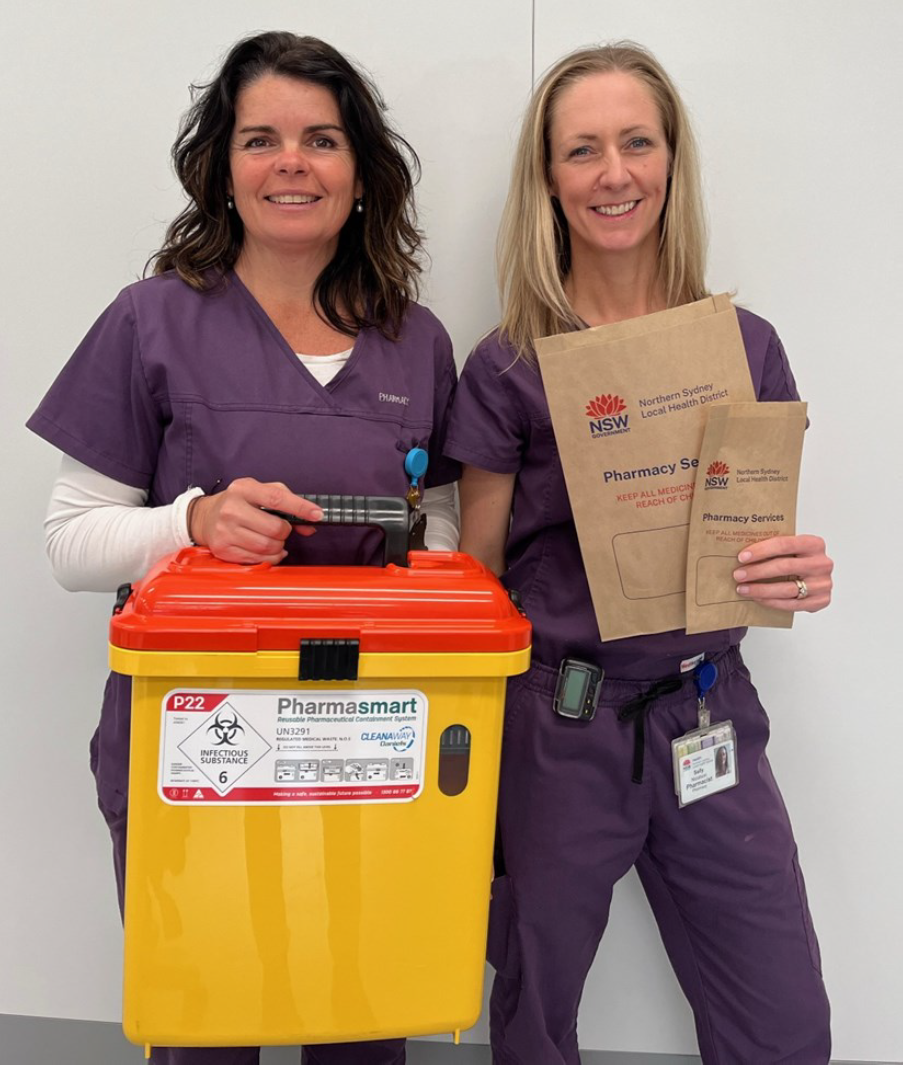
Projects you can support
- Project 1: Net Zero Leads Program
- Project 2: Energy efficiency
- Project 3: Greening the Kolling Forecourt
This Australian-first Net Zero Leads Program supports twelve clinicians across the district to lead a net zero project in their service or specialty, half or one day per week.
As healthcare professionals, the Net Zero Leads are uniquely placed to contribute to significant and sustainable change in the field of planetary health.
The cohort consists of experts in the fields of anaesthetics and surgery, endocrinology, nursing, paediatrics, pharmacy, physiotherapy and respiratory medicine.
Read more about the program.
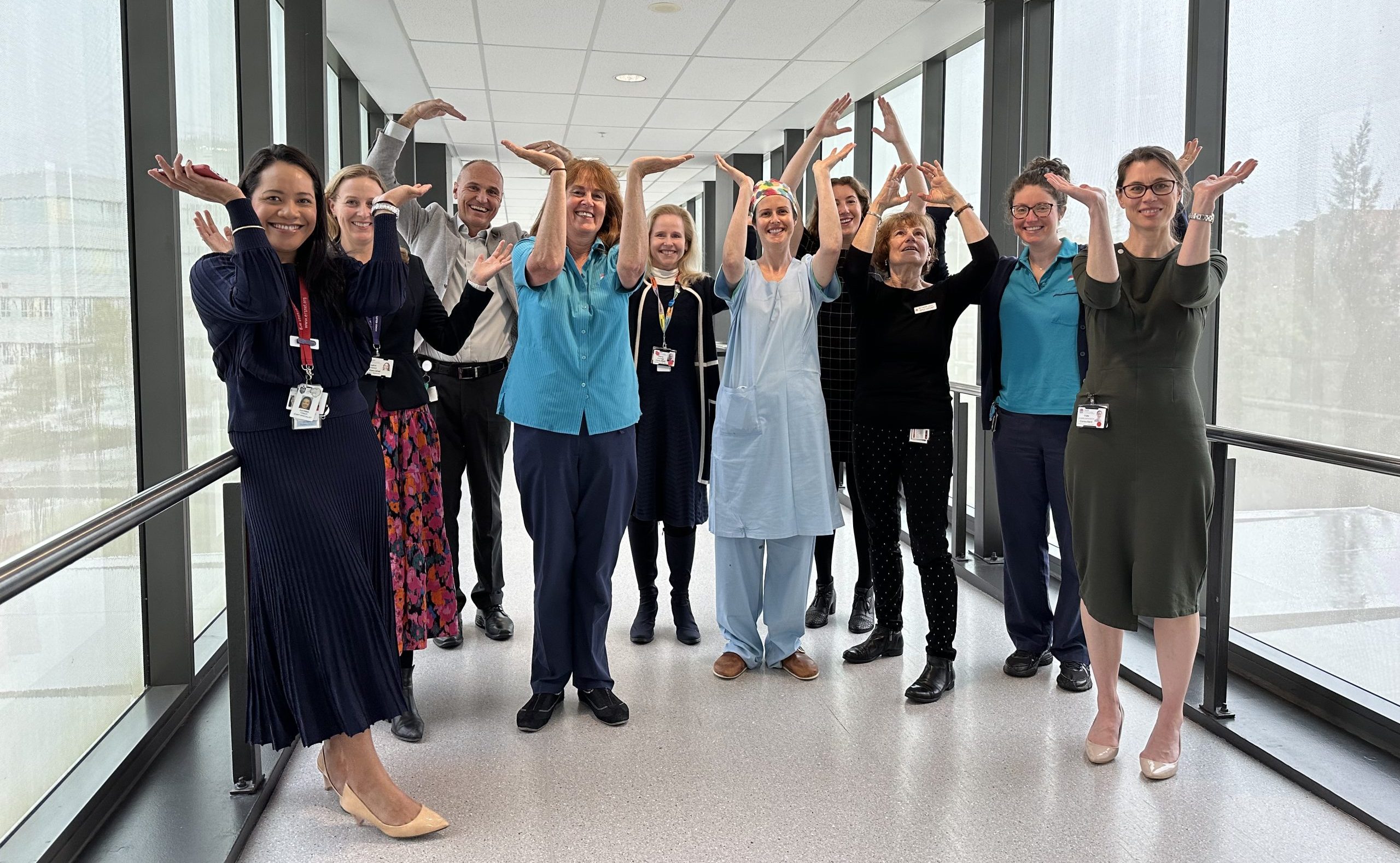
Net Zero Leads Team
Electricity is the top emission hot spot across NSLHD, representing close to 38% of total carbon emissions. To achieve net zero by 2035, improvements in the use of energy must be made and purchasing of 100% renewable electricity is required.
There has been excellent progress in this area, including:
- Since 2014, more than 279,876 kilowatts has been saved every hour thanks to solar, LED lighting and other measures.
- Over the last year, 5,000 lights were replaced at Royal North Shore Hospital, Mona Vale Hospital and Brookvale Community Health Centre with LED lights.
- The use of solar has reduced energy consumption from the grid saving two million kWh translating to a cost saving of $317,240.
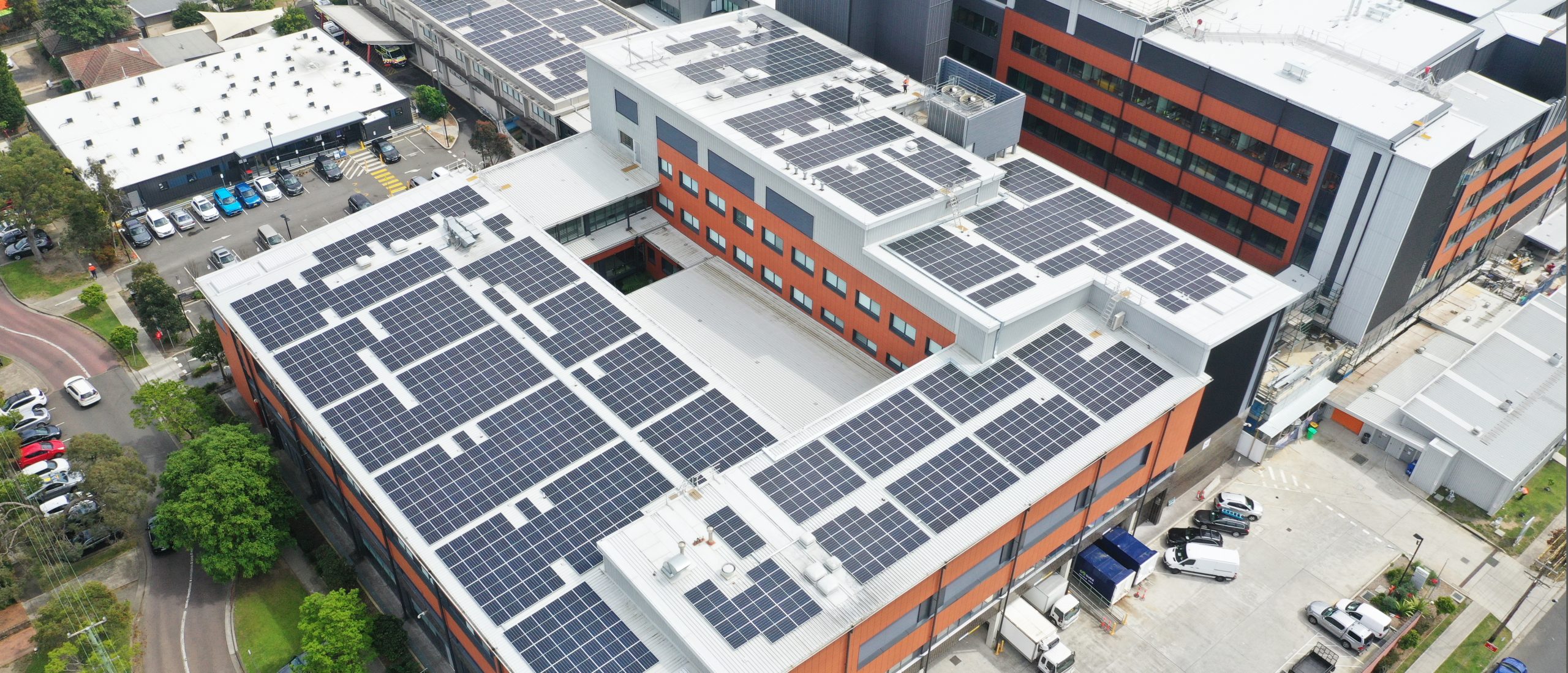
Solar panels Hornsby Ku-ring-gai Hospital
The Kolling Forecourt Greening Project aims to create a natural and sustainable space for staff, patients and visitors at Royal North Shore Hospital. It’s important that our hospitals are welcoming community hubs that connect Country and people. The concept design has six elements including a Summer Garden, perimeter planting, shade structure and green spine.
We invite you and your family or organisation to be a part of the garden creation!
Current
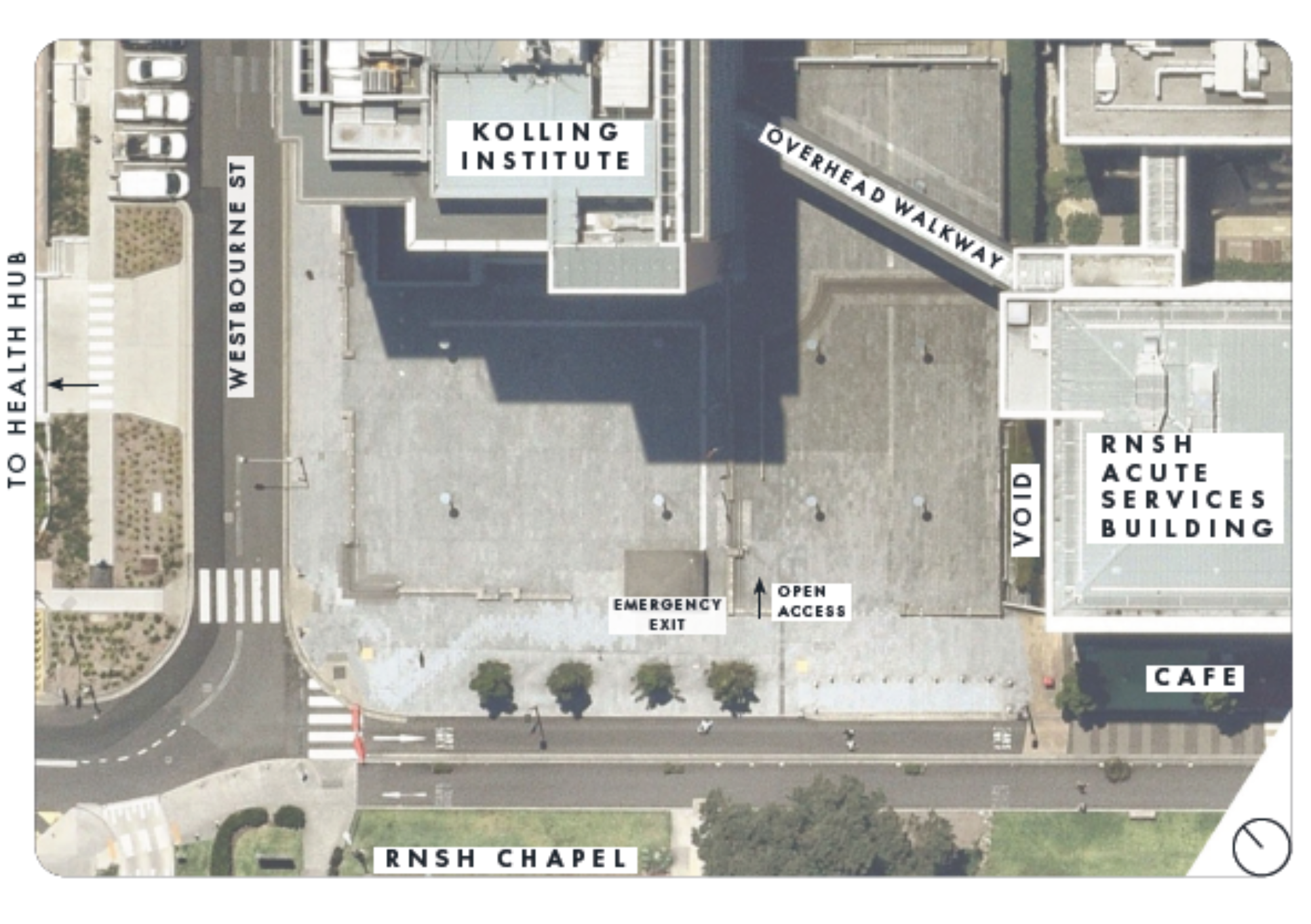
Proposed
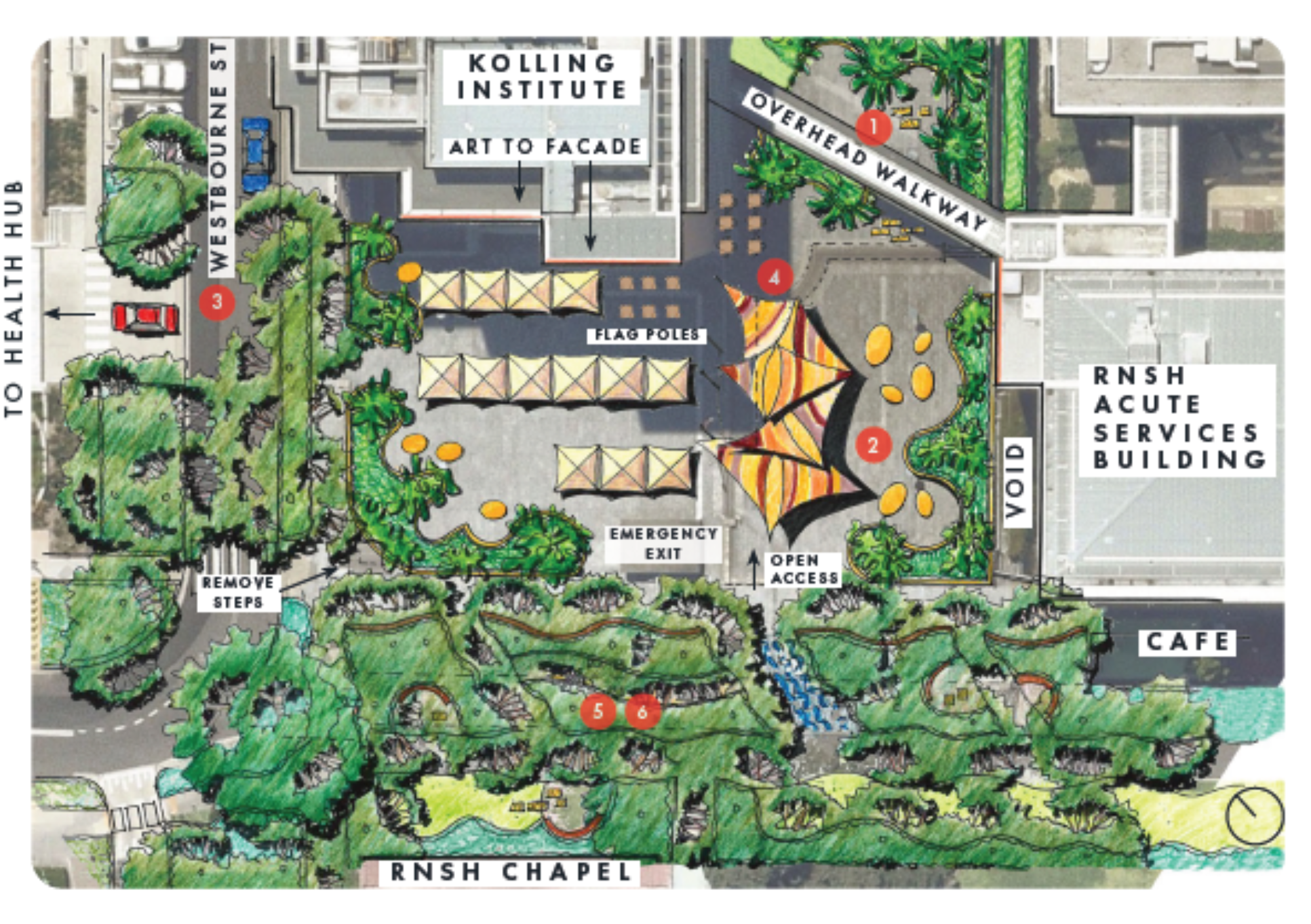
Meet the Planetary Health team
The Planetary Health team is supported by Corporate Services and Procurement, the Net Zero Leads and sustainability champions at each hospital.
Nicola Groskops
Lynley Hurst
Paul Klarenaar
Which area would you like to support?
How much would you like to donate?
Your donation will help NSLHD achieve their net zero target and make a difference to the Northern Sydney community.
Your Details
